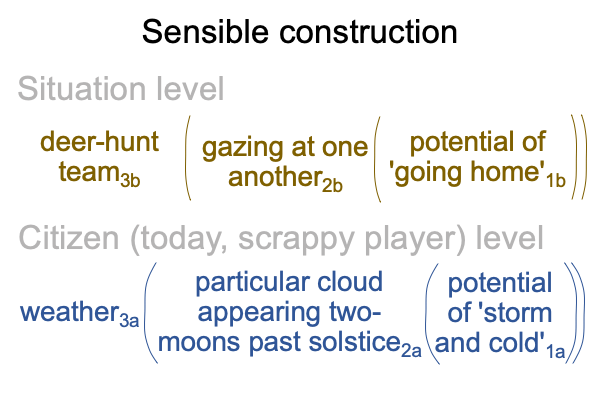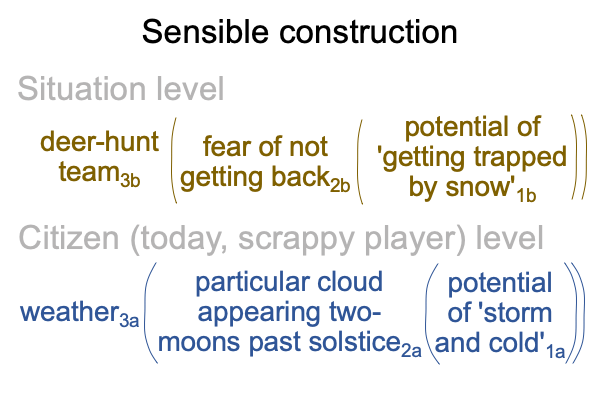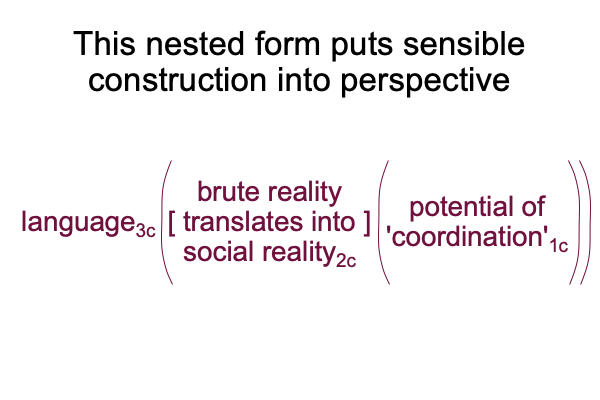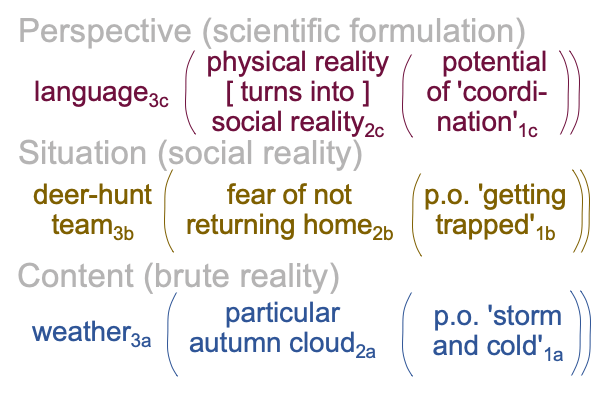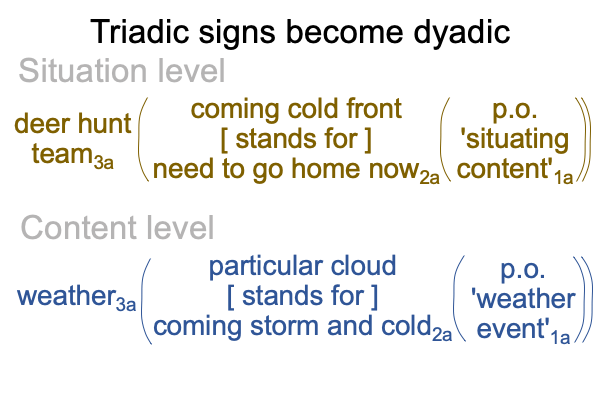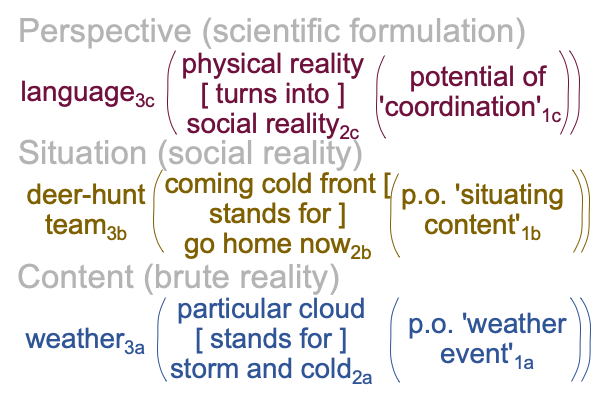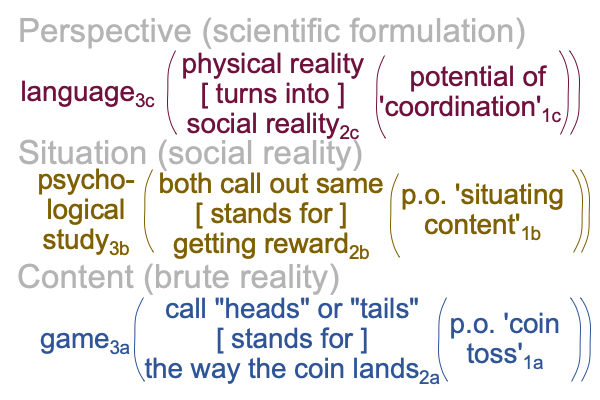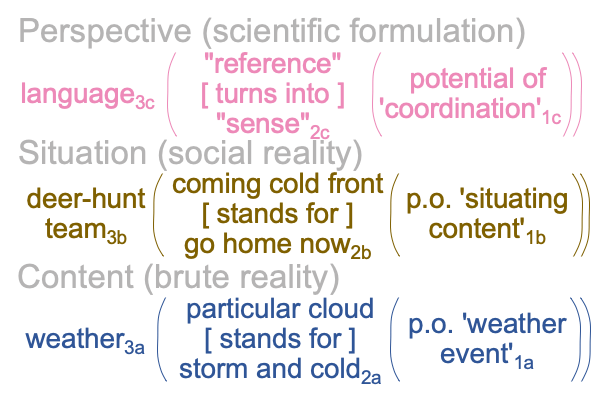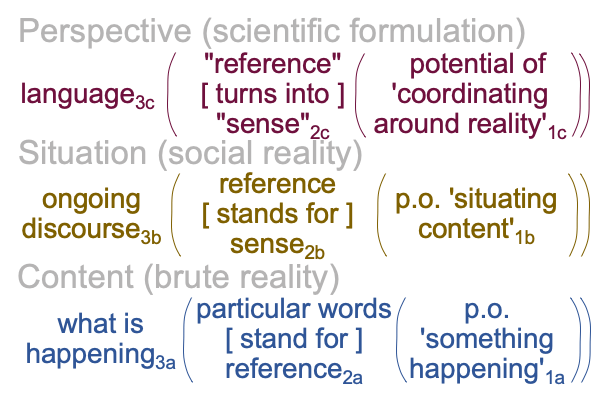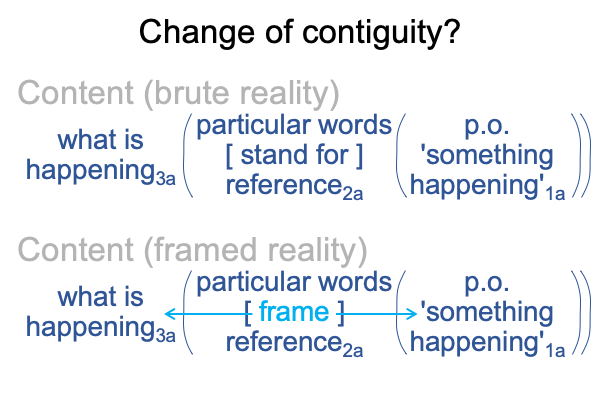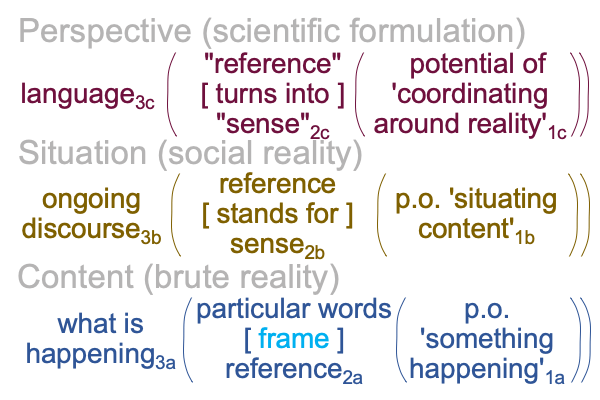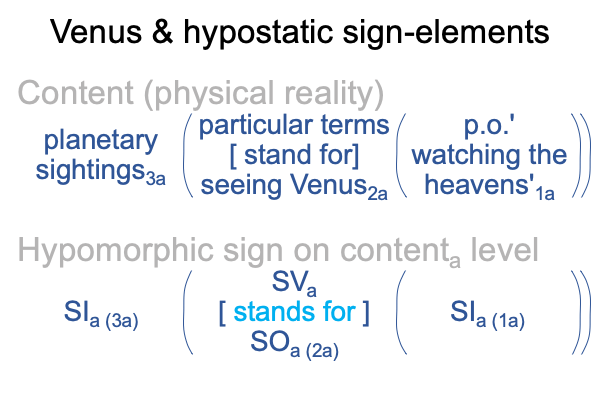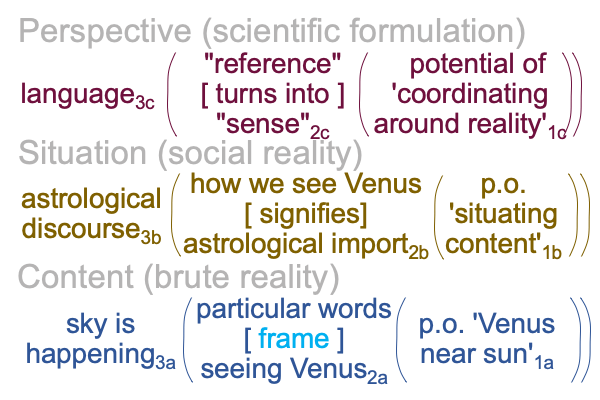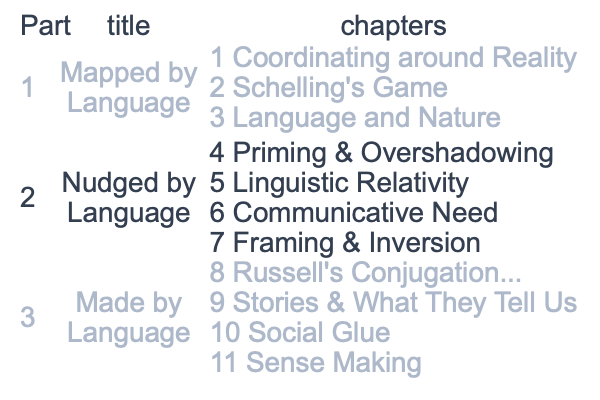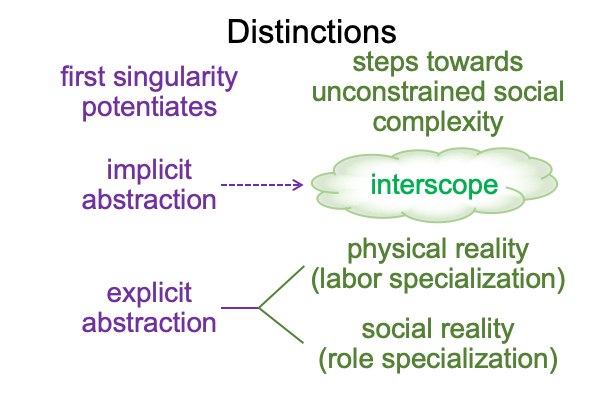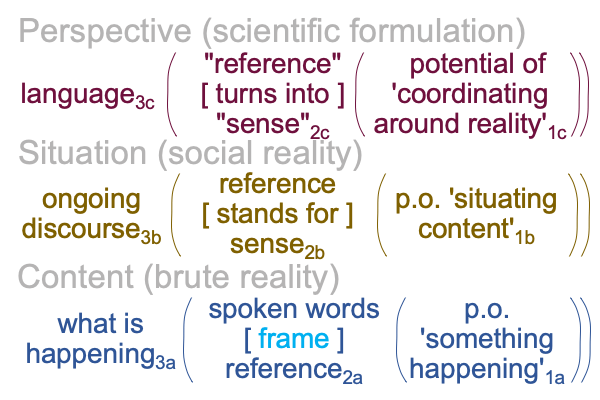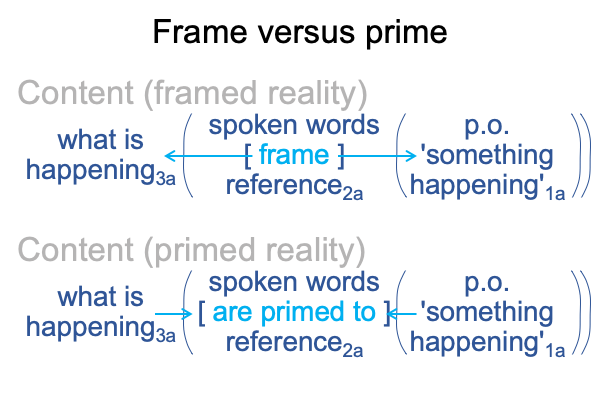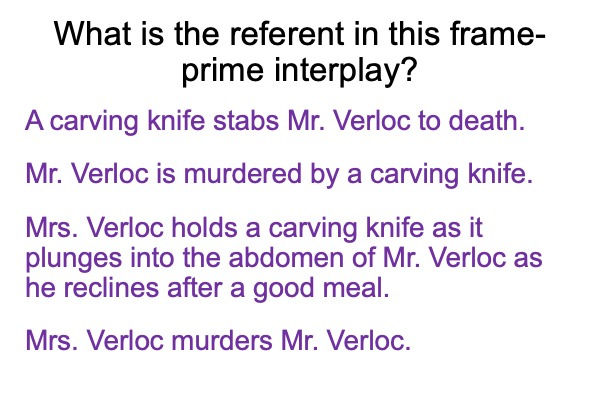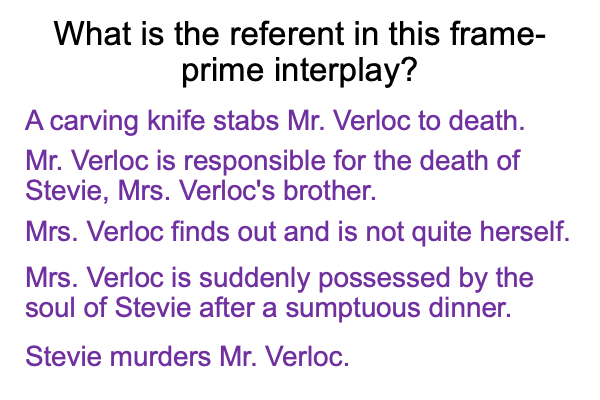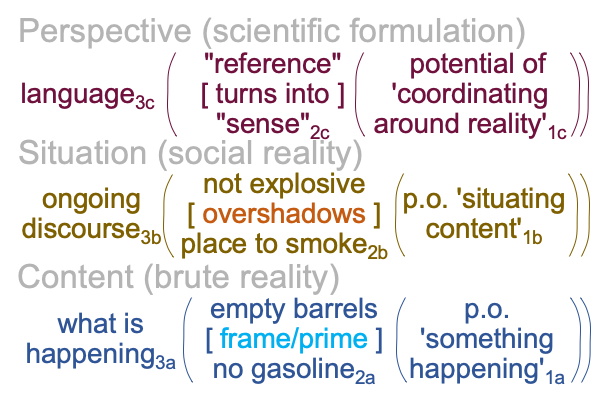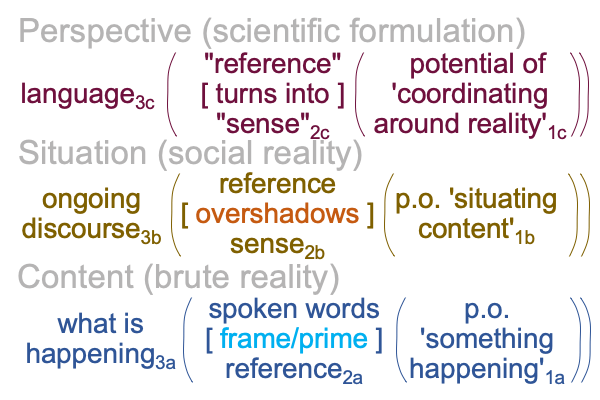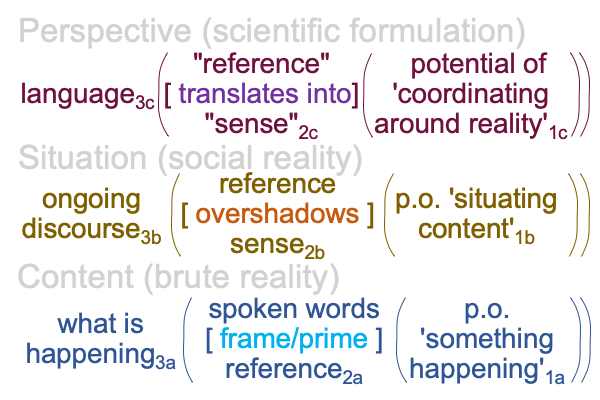Looking at N. J. Enfield’s Book (2022) “Language vs. Reality” (Part 3 of 23)
0861 Enfield’s book is published in 7822 U0′.
Astrologers may further refine the nominal date for 0 U0′. Right now, it stands as 5800 B.C.
0862 7822 years after the first singularity starts, N. J. Enfield publishes a book on the nature of language and reality, along with their adversary, the human mind. He has no awareness that his civilization, indeed, all civilizations in all of history, are realities socially constructed using explicit abstraction made possible by speech-alone talk.
0863 Consequently, the foundational distinction that Enfield cannot make is between implicit and explicit abstraction. (For further readings, consider A Primer on Implicit and Explicit Abstraction, by Razie Mah, available at smashwords and other e-book venues).
Perhaps, not surprisingly, Enfield offers a second best distinction in his introduction. The distinction between brute (or physical) reality and language (or speech-alone talk) is precisely the cut that separates labor (task-oriented) and social (role-oriented) specialization. Scientists investigate physical reality. Lawyers manipulate social reality.
0864 Here is a map of the two distinctions, one foundational and one next to foundational.
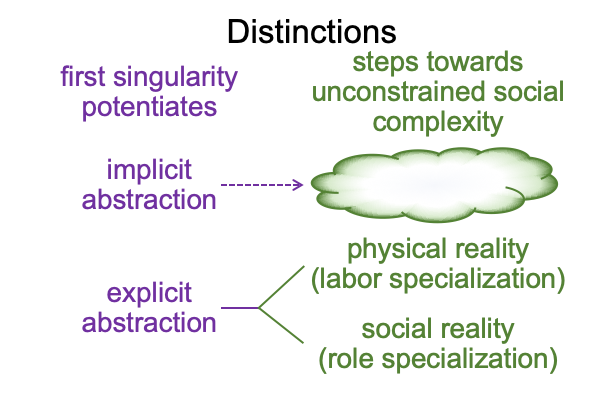
0865 The above distinctions pose a difficulty, because humans evolve in a Lebenswelt of implicit abstraction. Hand-talk pictures and points to its referents. Humans think in the ways of implicit abstraction.
0866 In contrast, speech-alone talk has no iconic or indexal traits. Explicit abstraction derives from the purely symbolic character of speech-alone talk. Speech-alone talk can label anything, including specifics for physical and for social reality, corresponding to labor and role specializations, the foundations of wealth and power.
Yes, speech-alone talk can label anything. Because humans evolved practicing hand-talk, different labels imply different referents. This may seem confusing, but humanity is yet to explore the entire spectrum of confusion that may arise from the fact that speech-alone talk can label anything, even the same thing, as if each label implies its own referent. After all, physical and social realities are labels for the same thing, the consequences of explicit abstraction.
0867 So what about that funny cloud?
While everyone in the social and psychometric sciences worry about the stuff of labor and social specialization, implicit abstraction sits like a fog over the entire discourse, because the terms used by science are… um… explicit abstractions.
How does the inquirer enter into that cloud of unknowing… er… implicit abstraction?
0868 I proceed by way of example.
0869 Imagine that I am the oldest member of a hominin team hunting deer in Eurasia during the time when fire is being domesticated. I am not the leader, per se, but I am old enough to serve in that capacity.
Oh yeah, the spoken-word, “leader”, does not exist in hand-talk.
Yet, leaders exist in the Lebenswelt that we evolved in.
Since we were successful at driving deer over a cliff the past few days, I think that the expedition today should go well. But, the deer are skittish and will not run in the correct direction when we close in on them.
Then, everyone sees a particular type of cloud that appears after the second full moon after the solstice, portending a brutal storm followed by much colder weather.
0870 We all innately share a common relation in the style of a category-based nested form, where a normal context3brings an actuality2 into relation with the possibility of ‘something1. The subscripts denote Peirce’s categories of thirdness, secondness and firstness, respectively.
Here, the normal context of the weather3 brings the actuality of this particular type of cloud2 into relation with the potential of ‘a sudden storm followed by cold’1.
0871 Surely, this nested form touches base with physical reality.
Here is a picture.
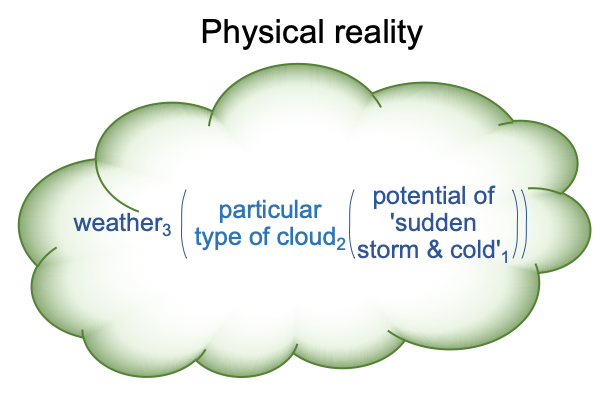
0872 Well, there is a related nested form, corresponding to social reality.
The normal context of a deer-hunting team3 brings particular gazes among team members2 (after I suggest that we make one more attempt at corralling that group of skittish deer towards the cliff) into relation with the potential of ‘going home before the storm hits’1.
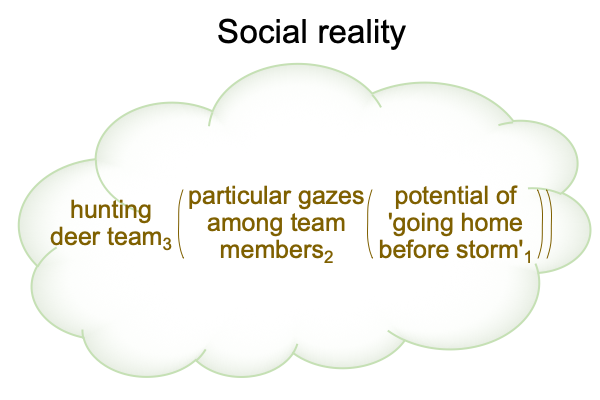
0873 Better to go home hungry than tarry.

